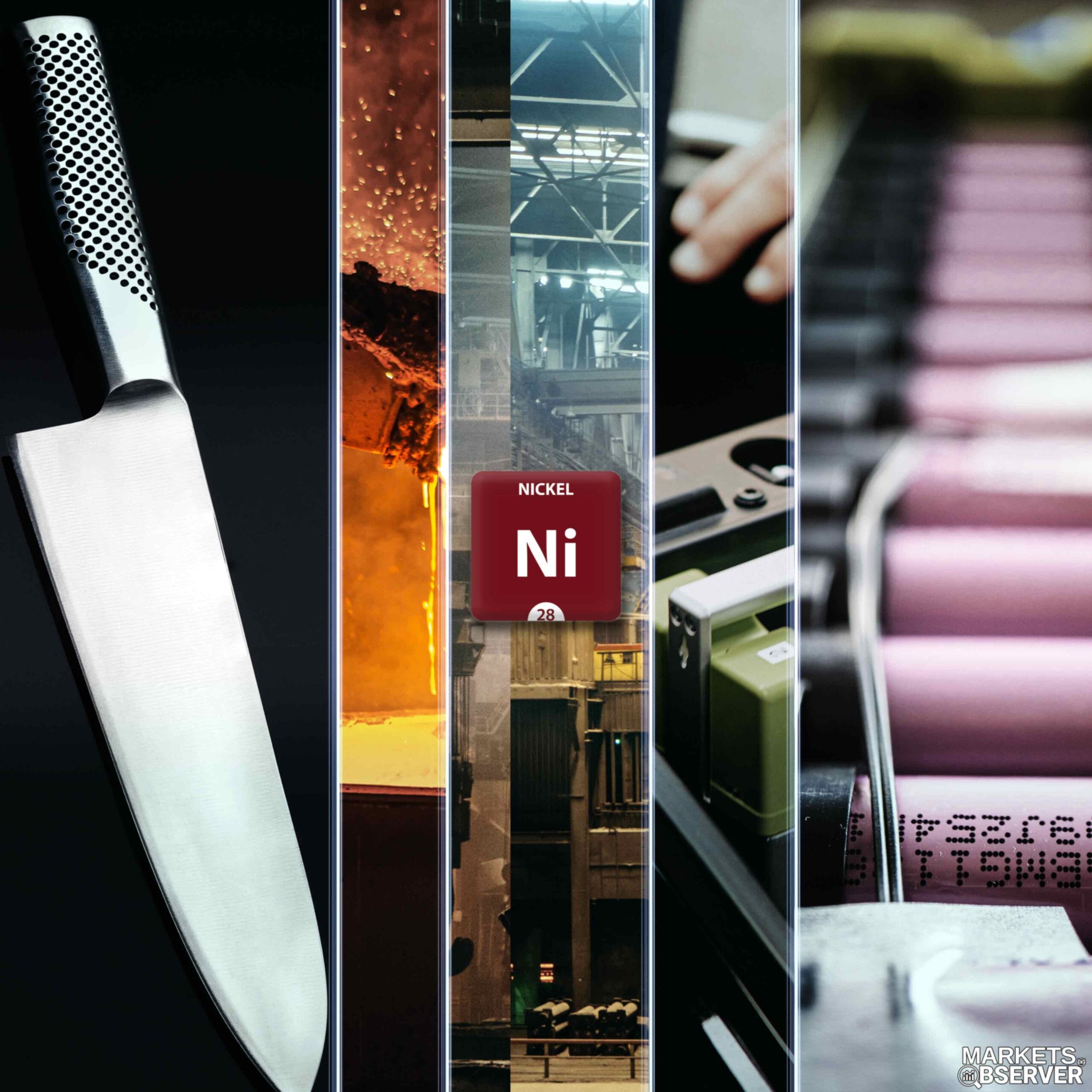- Nickel is a chemical element with the symbol Ni and atomic number 28.
- It is a silvery-white lustrous metal with a slight golden tinge.
- Nickel belongs to the transition metals and is hard and ductile. It has a relatively low melting point (1453 °C or 2667 °F) and a high boiling point (2732 °C or 4990 °F). It is a good conductor of heat and electricity, and is magnetic at room temperature.
- Nickel is commonly used in many industrial and consumer products, including stainless steel, magnets, coinage, rechargeable batteries, electric guitar strings, and special alloys. It is also used in the production of certain chemicals and as a catalyst.
Nickel is a naturally occurring element that is found in the earth’s crust, typically in combination with other elements such as sulfur, oxygen, and chlorine. It is usually mined as a metal sulfide ore, and then the nickel is extracted through a process of roasting and reduction.
Nickel is a versatile metal that is used in a wide variety of applications, including:
- Stainless steel: Nickel is a key component in the production of stainless steel, which is an alloy of steel, chromium, and nickel. Stainless steel is known for its corrosion resistance and is widely used in construction, kitchen utensils, and medical equipment.
- Coinage: Nickel is used to make coins, particularly in the United States where nickels are made of an alloy of nickel and copper.
- Rechargeable batteries: Nickel-cadmium (NiCad) and nickel-metal-hydride (NiMH) batteries are rechargeable batteries that are widely used in electronic devices.
- Special alloys: Nickel is used to create special alloys that have specific properties such as strength, corrosion resistance, and high-temperature resistance. These alloys are used in aerospace, marine, and chemical industries.
- Electric guitar strings: Nickel-plated steel strings are popular among guitar players for their bright and warm tone.
- Catalyst: Nickel is used as a catalyst in the production of chemicals such as synthetic rubber and gasoline.
Nickel is considered an essential element for human health, but exposure to high levels of nickel can cause health problems such as allergies and lung cancer.



